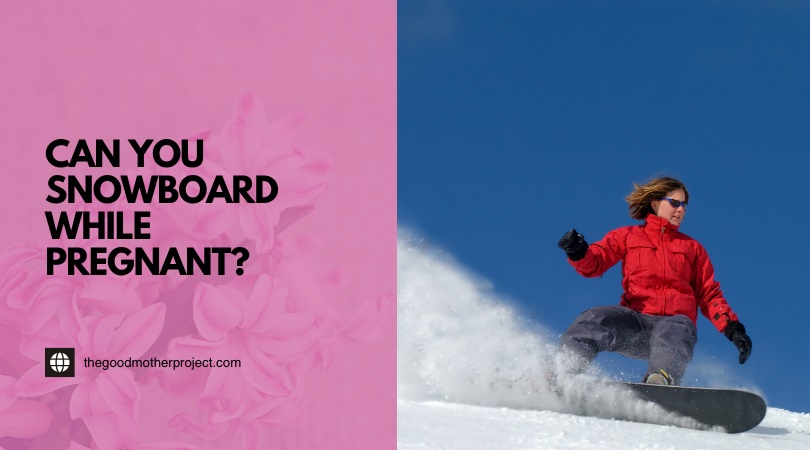Last Updated on January 6, 2025
Snowboarding while pregnant is generally not recommended. The risk of falls and injury poses potential dangers to both mother and baby.
Pregnancy brings many changes, and safety becomes a priority. Expecting mothers often seek advice on physical activities. Snowboarding, an exhilarating sport, can be tempting. The thrill of gliding down the slopes may seem appealing, but it carries risks. Balance and coordination can be affected during pregnancy, increasing the likelihood of falls.
Additionally, the impact from a fall can lead to serious complications. It’s crucial to consult a healthcare provider before making any decisions. Understanding the risks allows pregnant women to make informed choices about their winter activities, prioritizing both their well-being and their baby’s health. Always prioritize safety over adventure during this special time.
Evaluating The Risks
Snowboarding during pregnancy raises several important concerns. Expecting mothers must consider both physical and environmental risks. Assessing these risks helps ensure safety for both mother and baby.
Physical Considerations
Physical changes occur during pregnancy. These changes can affect balance and stability.
- Center of Gravity: Shifts as the belly grows.
- Joint Stability: Hormonal changes may loosen joints.
- Energy Levels: Fatigue can increase with each trimester.
Injuries can happen easily. A fall while snowboarding could lead to serious harm. Expecting mothers must evaluate:
| Risk Factor | Description | Impact |
|---|---|---|
| Balance Issues | Altered balance due to weight gain. | Higher chance of falling. |
| Increased Fatigue | Low energy levels during pregnancy. | Less ability to react quickly. |
| Joint Pain | Loose ligaments increase pain. | Difficulty in controlling movements. |
Environmental Factors
Snowboarding takes place in unique environments. Weather conditions can change rapidly. Poor visibility and icy slopes pose serious risks.
- Weather: Cold temperatures can affect the body.
- Snow Quality: Icy or slushy snow can lead to falls.
- Altitude: Higher elevations can cause fatigue.
Consider these factors:
- Check weather forecasts before heading out.
- Choose slopes that match your skill level.
- Stay hydrated to avoid altitude sickness.
Always prioritize safety while snowboarding. Make informed choices to protect yourself and your baby.
Advice From Health Professionals
Snowboarding during pregnancy raises many questions. Health professionals often provide guidance. Their advice focuses on safety and well-being.
Doctor’s Recommendations
Many doctors advise against snowboarding while pregnant. Here are key reasons:
- Balance issues: Pregnancy alters your center of gravity.
- Injury risk: Falls can harm both mother and baby.
- Increased fatigue: Expectant mothers tire more easily.
Consult your doctor before snowboarding. They will assess your health. Each pregnancy is unique. Trust their expertise.
When To Hit The Slopes
Timing is crucial for snowboarding. Here are guidelines:
| Trimester | Recommendation |
|---|---|
| First Trimester | Generally safe, but consult your doctor. |
| Second Trimester | More stable, but caution is advised. |
| Third Trimester | Avoid snowboarding due to balance issues. |
Monitor your body’s signals. Prioritize your health and the baby’s safety. Enjoy winter sports when conditions are right.
Safety Tips For Pregnant Snowboarders
Snowboarding during pregnancy requires extra caution. Here are some essential safety tips to ensure a fun and safe experience.
Protective Gear Essentials
Wearing the right protective gear is crucial. Here are the must-have items:
- Helmet: Protects your head from injuries.
- Wrist Guards: Prevent wrist fractures during falls.
- Knee Pads: Safeguard your knees from impact.
- Padding: Extra padding on your core can provide comfort.
- Insulated Clothing: Keeps you warm and dry on the slopes.
Choosing The Right Slopes
Selecting the right slopes is vital for safety. Follow these guidelines:
- Beginner Trails: Stick to easy, well-groomed runs.
- Avoid Crowded Areas: Less traffic reduces risks.
- Check Conditions: Look for icy or steep spots.
- Stay Close to Base: Keep your rides short and manageable.
- Listen to Your Body: Stop if you feel tired or uncomfortable.
Prioritize your health and safety while enjoying the snow.
Frequently Asked Questions
Can I Snowboard In My First Trimester?
Snowboarding during the first trimester is generally considered risky due to balance changes and potential falls.
What Are The Risks Of Snowboarding While Pregnant?
Risks include falls, injuries, and stress on the baby, especially in later trimesters.
How Does Pregnancy Affect Balance While Snowboarding?
Pregnancy can lead to instability and reduced balance, increasing the likelihood of accidents on the slopes.
What Alternatives Exist To Snowboarding During Pregnancy?
Consider activities like skiing on gentle slopes, snowshoeing, or indoor exercises for safer options.
Should I Consult A Doctor Before Snowboarding?
Yes, always consult your healthcare provider to assess risks based on your individual health and pregnancy status.
Conclusion
Snowboarding during pregnancy is a personal decision that requires careful consideration. Weigh the risks and benefits before hitting the slopes. Always consult your healthcare provider for tailored advice. Prioritize your safety and that of your baby. Ultimately, enjoy your pregnancy journey, whether on the mountain or off.








